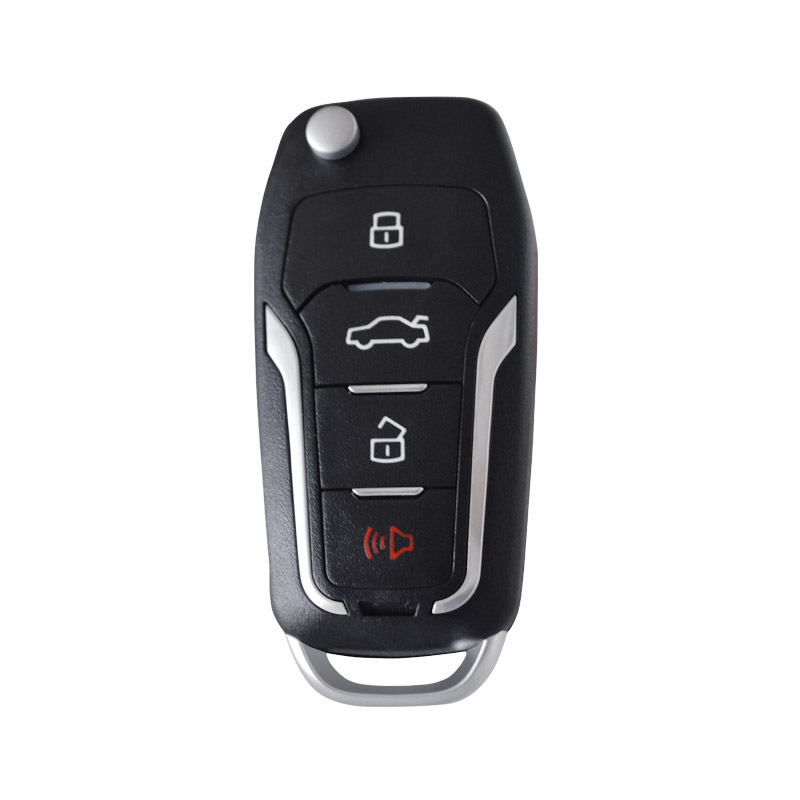With the increasing integration of technology in modern vehicles, car keys have evolved beyond mere physical access devices to sophisticated electronic components. As a result, car key manufacturers are faced with the critical task of addressing cybersecurity and data protection concerns to ensure the security of vehicles and the privacy of users. This article explores the measures taken by car key manufacturers to mitigate cybersecurity risks and safeguard data protection.

1. Encryption Technology:
Car key manufacturers employ advanced encryption technology to secure communication between the key fob and the vehicle's electronic control unit (ECU). Encryption algorithms, such as Advanced Encryption Standard (AES), are used to encode signals transmitted between the key and the vehicle, making it extremely difficult for unauthorized parties to intercept and decipher the communication. By implementing strong encryption, manufacturers ensure that keyless entry systems remain resistant to hacking attempts and unauthorized access.
2. Rolling Code Mechanism:
Many car key manufacturers utilize rolling code mechanisms in their keyless entry systems to enhance cybersecurity. Rolling codes are unique, randomly generated codes that change with each use of the key fob. This dynamic code system prevents replay attacks, where attackers intercept and replay previously captured codes to gain unauthorized access to the vehicle. The rolling code mechanism adds an extra layer of security, ensuring that only the legitimate key fob can unlock the vehicle.
3. Secure Key Pairing:
Car key manufacturers implement secure key pairing protocols to establish a trusted connection between the key fob and the vehicle's ECU. During the initial pairing process, cryptographic keys are exchanged between the key fob and the vehicle, establishing a secure communication channel. This secure key pairing prevents unauthorized devices from gaining access to the vehicle's systems, protecting against spoofing and unauthorized remote access.
4. Over-the-Air (OTA) Updates:
To address cybersecurity vulnerabilities and ensure ongoing protection, car key manufacturers provide over-the-air (OTA) update capabilities for key fob firmware. OTA updates allow manufacturers to deploy security patches and firmware updates remotely, addressing identified vulnerabilities and enhancing the security of keyless entry systems. By regularly updating key fob firmware, manufacturers can mitigate emerging cybersecurity threats and ensure the continued protection of vehicle access systems.
5. Data Protection Measures:
Car key manufacturers implement robust data protection measures to safeguard sensitive information stored within key fobs. Personal identification information (PII), vehicle identification numbers (VINs), and cryptographic keys are encrypted and securely stored within the key fob's memory. Additionally, access to sensitive data is restricted through authentication mechanisms, ensuring that only authorized users can access and modify key fob settings and data.
6. Compliance with Regulatory Standards:
Car key manufacturers adhere to industry regulations and standards related to cybersecurity and data protection, such as ISO/SAE 21434 and ISO 27001. Compliance with these standards ensures that manufacturers follow best practices for cybersecurity risk management, secure development processes, and data protection measures. By aligning with regulatory standards, car key manufacturers demonstrate their commitment to cybersecurity and data protection principles, providing assurance to consumers regarding the security of keyless entry systems.
Conclusion:
Car key manufacturers prioritize cybersecurity and data protection in the design and implementation of keyless entry systems. Through the use of encryption technology, rolling code mechanisms, secure key pairing protocols, OTA updates, data protection measures, and compliance with regulatory standards, manufacturers mitigate cybersecurity risks and safeguard the privacy and security of vehicle access systems. By implementing these measures, car key manufacturers ensure that keyless entry systems remain resilient against emerging cybersecurity threats, providing consumers with peace of mind regarding the security of their vehicles.

 Englishen
Englishen











 No.991 Xingxiu Road,Taiwanese Investment Zone, Quanzhou, Fujian Province,P.R.China
No.991 Xingxiu Road,Taiwanese Investment Zone, Quanzhou, Fujian Province,P.R.China +86 13960286508
+86 13960286508
 3D Reality Showroom
3D Reality Showroom
